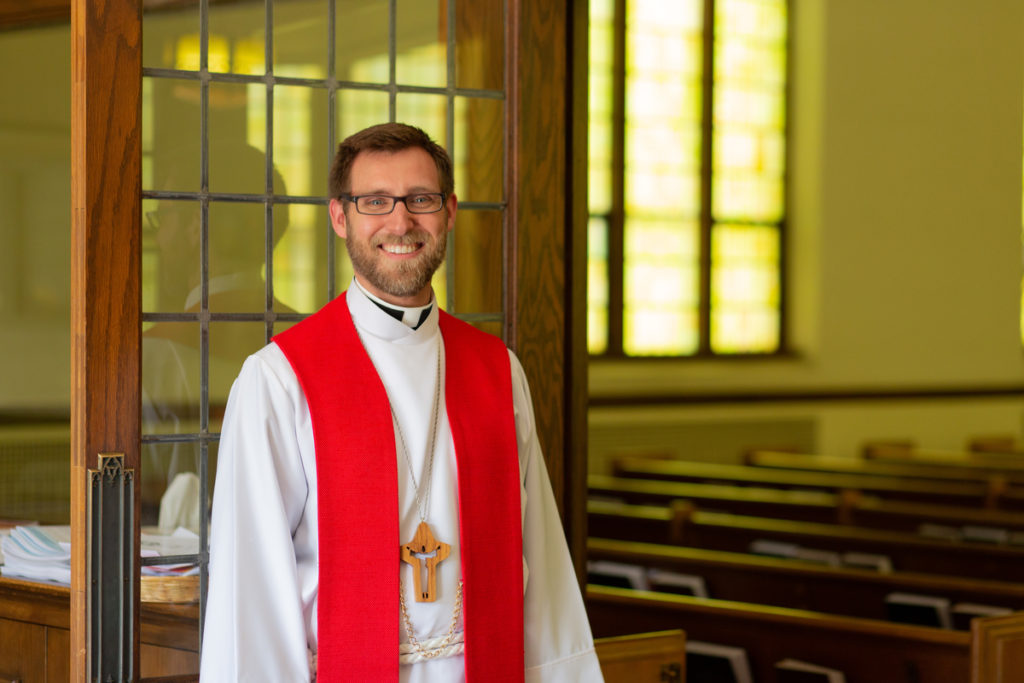Have you ever preached the Gospel to people who don’t care about anything but the present moment? Or to put it differently, can you imagine sharing the good news with people who don’t believe that the past and future have any claim on today?
Past, Present, Future
A Facebook group to which I belong recently shared a “Preaching Moment” video by Thomas G. Long, homiletics professor at the Candler School of Theology, in which he addresses this situation. According to Long, the so-called “narrative” mode of preaching has become less effective in recent years because fewer people view their lives as a story with a past, present, and future.
“The narrative mode of preaching addressed this need: the need is, I have heard the gospel; I know the biblical message, but I am not existentially engaged with it,” Long explains. “And therefore I need to move from knowledge to delight.” Narrative preaching seeks to move listeners from passive knowledge of the Gospel to a lively faith in it by telling stories that help listeners see themselves within the grand narrative of Scripture.
Location on the Timeline
But you know how stories work: they typically connect the past, present, and future, making sense of how one event touches another. What if the culture to which you preach lacks that sense of time? That is, what if it lacks not only knowledge of the biblical narrative but also what Long calls narrative competence, the ability to view things in chronological relationship and locate oneself within that timeline?
Referencing an Oxford scholar named Galen Strawson, Long points to the rise of people who understand themselves in this “episodic” way. People who think “episodically” know that certain things happened to them in years past, but they insist that those things don’t have a material effect on who they are today. Moreover, they don’t view their present in light of any anticipated future.
Instead, the present moment alone becomes the workshop of identity. A person’s origins, experiences, and ultimate destination have no necessary bearing on beliefs and moral decisions. “Who I am today may not be who I am tomorrow” — we’ll have to wait and see. (You may read Strawson’s argument here.)
You and I, like Long, may disagree with this episodic interpretation of human nature. It seems, perhaps, a bit defensive, like an argument for how someone wants things to be more than a confession of how things really are. But now consider some of the trends that we see in our culture and churches.
Trends and Doom
In the realm of identity politics and intersectional theory, both personal and national identities can be forged through hard breaks with the past that disavow its relevance for the present. Perhaps the past is viewed as too oppressive or indecent for serious consideration, even to the point of rejecting the literary and artistic accomplishments of prior eras due to their supposed moral degeneracy.
Likewise, scientific and quasi-scientific foretelling of the earth’s future can sometimes paint such a vision of doom as to deny any real future at all. Ecological prophecy can leave people anywhere from dismal about tomorrow to blithely unconcerned about it. The future looks as impossible as the past looks dangerous, rendering both irrelevant for the present.
Torching the Church’s Past
We have whiffs of this episodic malaise in the church, too. Some of its leaders seem intent on torching the church’s past, perhaps deeming it too white, too capitalist, or too cis. Better, they say, to remake the church in light of present sensibilities alone. Others, in their radical calls for social justice, appear almost to despair of any future change, their cries increasingly vengeful. Where, one might wonder, is their enlivening hope in the advent of Christ? You can always smell a church without a Christ-centered vision of the future, especially if you’ve had prior experience in smelling corpses.
How Now Shall We Respond?
So Strawson and Long may have touched on something significant. Their reflections dovetail with what others have noted about the growth of a “new paganism” in America, given that many non-traditional spiritualities also lack a clearly linear conception of time. But now the question is: how shall confessing Lutherans respond?
First, we should answer for ourselves the basic challenges that the episodic mindset poses to our confession of faith. For example, speaking of forgiveness necessarily assumes the relevance of both the past and the future to the present. Forgiveness only matters as part of a story where people are otherwise responsible for their past action and face condemnation in the future. But why should that be? Why should my actions yesterday have any claim on who I am today? Don’t Lutherans believe in a “new Adam and Eve rising daily” before God?
Why the Past and Future Matter
In response, Lutherans might start with what we consider the hallmark condition for freedom and life before God: “the righteous shall live by faith.” Trust in Christ justifies the sinner, Scripture says, and just a little reflection on the nature of faith will reveal why the past and future matter as much as the present.
Simply put, trust is necessary for happiness. It is trust that allows us to form commitments that provide us with daily security and open the future to such fundamental things as love and family. At the same time, trust thrives on the past and anticipates a future. Whether it’s trust in God or trust in our neighbor, faith in anyone depends on the reliability of that person, a reliability that is only known through the narrative of that person’s past. As a colleague of mine points out, you may consider yourself as free of your past as you wish, but your boss may have other thoughts. A boss relies on your dependability in anticipation of the company’s future success.
Why Trade Freedom for Bondage?
Having reflected on those connections between happiness, trust, and time, confessing Lutherans may then critique the episodic mentality and answer its challenges with the renewing Word. By way of the Law, we may press a culture that seeks to ignore the past and future with a simple question: why would you trade freedom for bondage? Why give up the necessary conditions for trust and commitment and love (the life God would have for you)?
Indeed, why not acknowledge things for how they really are, even if it means finding yourself saddled with a history of wrong? Facing our past error ultimately sets the stage for greater trust, commitment, and love in the future by exposing our unreliability and asserting that both God and we hope to end it.
Then, having exposed the happy life’s dependence on both the past and the future, we may introduce the narrative of God’s utter dependability. His trustworthiness, pictured through the history of Israel and fulfilled in Jesus, not only justifies the existence of sinners now — they exist for His glory, as it turns out — but it also opens the future with the promise of their ultimate healing. Preaching this faithfulness of God starts to root a rootless culture into His narrative.
Rise of the New Adam
It also allows us to grant the episodic mindset at least one gracious nod. Inherent to episodic thinking is the desire to be continually new. As noted earlier, some might say that thinking episodically is good Lutheranism. “Don’t Lutherans believe in a new Adam or Eve emerging daily?” Yes, it is essential to faith in Holy Baptism! Recognizing that the past and future play a role in shaping identity should never steal from the believer that fresh joy of Christ.
But now we can see what makes such joy possible. The believer only comes to newness of life by trusting God’s trustworthiness over the sinner’s unreliability. That is, it only comes by way of repentance, and that repentance is made possible only through trust in God’s mighty works and what they promise in the world to come. Only through this intersection of the Biblical narrative and one’s personal narrative does the New Adam arise.

I’m not writing these reflections to advocate a renewal of narrative preaching. To the contrary, I agree with Long that the narrative preaching of the last century has probably enjoyed its heyday. But consideration of how the church and its neighbors divide over one key aspect of narrative (time!) may help us speak the Gospel. It may lead us to understand better why some people are not hearing us, and how we may overcome that divide with the good news that turns past, present, and future into a really good time.



















